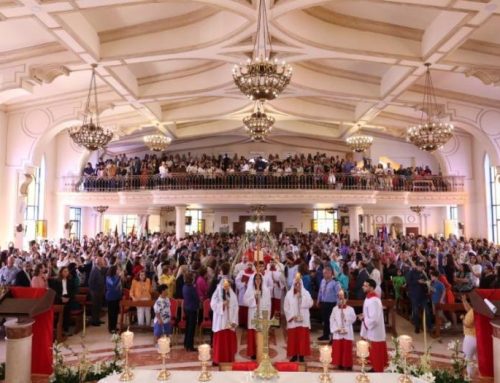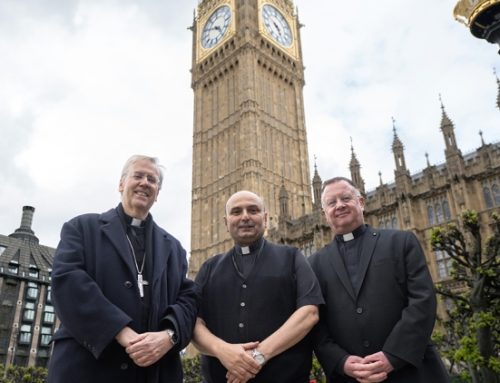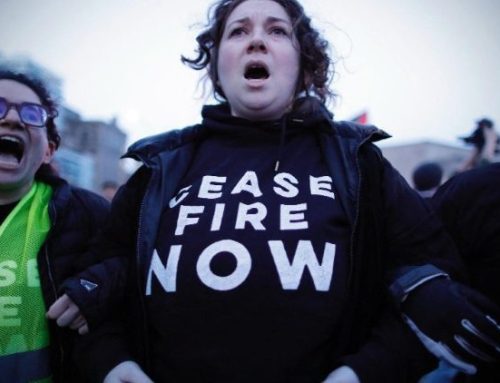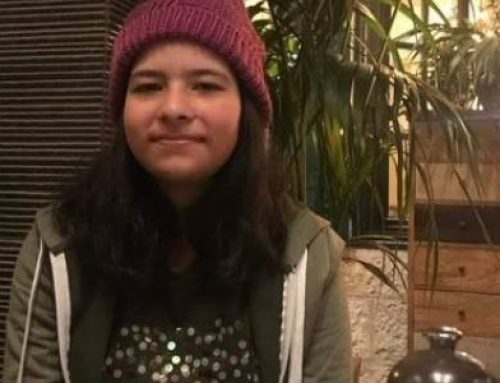The sessions of the two-day conference titled, “Christians and Christianity in the Middle East,” organized by the Catholic Centre for Studies and Media (CCSM) in Jordan in cooperation with Konrad Adenaur Stiftung (KAS) office in Amman, concluded on Friday, May 27 with a special session held in Madaba during which stress was made on the importance of supporting religious tourism to Jordan in its capacity as a holy land and a historical witness of the Christian presence in the East.
During the session, Chairman of the Board of Directors of Namaa Strategic Consulting Company Dr. Faris Brizat and member of the Tourism and Antiquity Parliamentary Committee Mr. Majdi Al-Ya’coub talked about the reality and aspirations relevant to Christian religious tourism in Jordan and in Madaba in particular. They also reviewed Jordan’s efforts to promote and develop the tourism movement in its capacity as not merely a tributary to the national economy, but rather as a method for transmitting noble human values and for getting acquainted with the Jordanian reality regarding harmony and common living.
Fr. Dr. Rif’at Bader, director of the Catholic Center for Studies and Media (CCSM) in Jordan and member of the National Tourism Board, praised the Jordanian efforts aimed at developing Christian pilgrimage sites, noting that the directives of His Majesty King Abdullah II and His Royal Highness Crown Prince Al Hussein Ibn Abdullah have always emphasized the importance of these holy sites and the importance of preserving them. He added that the four papal visits to Jordan, the country of the Baptism of Lord Jesus Christ, as well as the visits paid by several heads of the various churches around the world serve as a confirmation of these efforts.
For his part, Deputy Chairman of Konrad-Adenauer-Stiftung Hermann Gröhe expressed his happiness that the conference is held in Jordan, as this country represents a role model in the region where the Christians live alongside their Muslim brethren and contribute–as he felt on his first visit to Jordan–in their capacity as genuine citizens to Jordan’s progress and prosperity. He noted that Konrad-Adenauer-Stiftung always seeks to support academic and cultural ideas that contribute to the prosperity of societies, especially with regards to plans designed to develop religious tourism.
After the closing session, the attendees visited the Shrine of the Prophet Musa on Mount Nebo, and listened to a briefing on the efforts being exerted therein to promote religious tourism.
The conference sessions
It is noteworthy that the conference sessions opened with addresses delivered by Latin Patriarch of Jerusalem His Beatitude Pierbattista Pizzaballa, CCSM Director Fr. Dr. Rif’at Bader, Deputy Chairman of the Konrad-Adenauer-Stiftung Hermann Gröhe, German Ambassador to Jordan Bernhard Kampmann, and Resident Representative of Konrad Adenauer Stiftung to Jordan Dr. Edmund Ratka.
In the first session of the conference, which was moderated by Mrs. Rana Sweis, the discussion focused on the current situation and the future of Christians of the East in general as addresses were made by Latin Patriarchal Vicar for Jordan Bishop Jamal Khader, President of Saint George University of Beirut Dr. Tarek Mitri, and Affiliated Researcher of Asian and Middle Eastern Affairs at the University of Cambridge Dr. Elizabeth Monier.
In the second session, which dealt with the situation of Christians in Palestine and in Jerusalem in particular and was moderated by Mrs. Farah Baddour, Executive Director of the Hashemite Fund for the Reconstruction of Al-Aqsa Mosque and the Dome of the Rock Dr. Wasfi al-Kailani stressed the importance of the Hashemite custodianship in preserving the Christian and Islamic sanctuaries in noble Jerusalem. Further addresses were delivered by former member of the Palestinian Legislative Council Dr. Bernard Sabella, Secretary General of the Council of the Heads of Churches in Jordan Fr. Dr. Ibrahim Dabbour who represented Greek Orthodox Bishop in Jordan Christophoros, and parish priest of the Melkite Catholic Community in Haifa Archimandrite Dr. Agapios Abu Saada.
The third session, which dealt in the impact of international politics on Christians of the Middle East, was moderated by Vice President and editor in chief of CNN Arabic Dr. Caroline Faraj. The speakers at this session were researcher in interfaith dialogue at Konrad Adenaur Stiftung in Germany Richard Ottinger and researcher in sociology Miray Philips.
On the second day of the conference, Friday, May 27, a fourth session was held, which dealt with the situation of Christians in Egypt, Iraq and Syria, was moderated by Dr. Eckhard Sonntag, researcher in religious communities and sustainable development at Humboldt University in Germany. Addresses were made by Professor of Statistics Dr. Ghazi Ibrahim Rahho, researcher in sociology at Minnisota University Miray Philips, and founder of Father’s House for all Nations Fadi Krikor.
The conference also held a fifth session on “The role of Muslim Arabs in maintaining and enhancing the Christian presence in the Middle East” which was moderated by CCSM Director Fr. Dr. Rif’at Bader. The panelists were Secretary General of the National Committee for Christian-Muslim Dialogue in Lebanon Dr. Muhammad Al Sammak, and Professor of Sharia at Al al-Bayt University Dr. Amer Al-Hafi.
At the end of the conference, the participants conveyed well wishes to dear Jordan marking its 76th Independence Day, and hoped that this dear country, under the leadership of His Majesty King Abdullah II and Crown Prince Al Hussein Ibn Abdullah, would remain an oasis of security and stability as well as a milestone in harmony and dialogue so as to remain all the time a significant place for holding these propitious conferences which convene in a place that has issued many international messages. It, furthermore, confirms what His Majesty the King, the custodian of the sanctuaries in noble Jerusalem, said when he was bestowed “The Path to Peace Award” from the Vatican a few weeks ago, that Christian Arabs are part of the past, the present, and the future of this region.
By Munir Bayouk/ en.abouna.org






